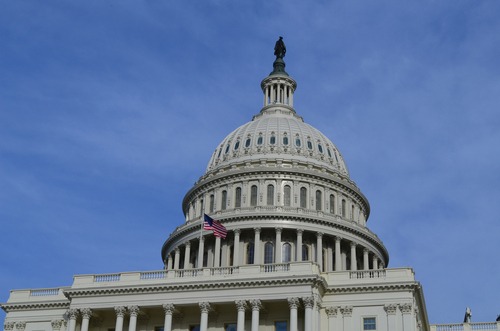
With feet to fire, congressional lawmakers are feverishly working to get bipartisan, bicameral companion bills to reauthorize the EB-5 Regional Center Program ready for a U.S. Senate vote before the program’s June 30 expiration date.
There isn’t much time left to get a final bill worked out with the Senate adjourning this week. As of Tuesday, word on Capitol Hill is that Senate Majority Leader Chuck Shumer’s (D-NY) office — which sets the schedule for the Senate floor — today is reviewing suggestions on the EB-5 Reform and Integrity Act of 2021, S. 831/H.R. 2901. Both bills would reauthorize the EB-5 Regional Center Program through 2026 and provide additional transparency and integrity measures to improve accountability of applicants, Regional Centers and their economic development projects.
Reportedly, opposition exists to some of the key integrity measures included in S. 831, which U.S. Sens. Chuck Grassley (R-IA) and Patrick Leahy (D-VT) introduced on March 18. U.S. Reps. Greg Stanton (D-AZ) and Brian Fitzpatrick (R-PA) on April 28 introduced the identical companion bill, H.R. 2901, which now has 22 additional cosponsors.
Grassley in particular has been fighting for years to reduce fraud and abuse in the program, which was created by Congress in 1993 to attract investments from foreign individuals who meet specific capital and job creation requirements in exchange for a green card. And while EB-5 investments have filled funding gaps and provided capital for local economic development projects, more concerns have surfaced in recent years related to national security.
Overall, the EB-5 Regional Center Program has been successful. Since 2008, it has brought in more than $6.5 billion in investment to New York alone and created more than 205,000 jobs, according to Aaron Grau, executive director of Invest In the USA (IIUSA), the nonprofit trade association representing the EB-5 Regional Center Program.
The program also has provided more than $41 billion in capital investment from across the globe to fund various economic development projects and support American businesses since its inception in 1990 — at no cost to the taxpayer, Grau says, adding that the capital deployed and resulting projects have created at least 820,000 job opportunities for U.S. workers.
“But this job-creating success story will expire on June 30 unless Congress reauthorizes it,” Grau wrote in a June 21 Times Union op-ed, pointing out that at the end of 2020, the Regional Center Program’s reauthorization language was “decoupled” from its traditional spending bill, meaning the program is not only set to technically expire June 30, but it also lacks the safety net provided by a “must-pass” appropriation bill.
Grau agrees that the EB-5 Regional Program needs change, including increased integrity measures “to help protect against the fraud and abuse brought on by one too many bad apples.”
Taylor Foy, communications director for Grassley, said that’s exactly what the Grassley/Leahy bill would provide: longer-term certainty for the EB-5 Regional Center Program and provisions to address “well-documented fraud and national security concerns that have been raised by Obama and Trump administration officials.”
“This bipartisan bill is also supported by broad swaths of the EB-5 industry,” Foy told Homeland Preparedness News on Monday. “However, some developers in wealthy urban areas want to exploit the discounted investment threshold reserved for rural and economically distressed areas, and want the bill to reverse regulations that guard against that behavior.”
Foy added that the fraud concerns have existed for years.
“During the Obama administration, DHS [the Department of Homeland Security] under Jeh Johnson acknowledged the program’s fraud vulnerabilities,” he said. “We’ve been working to reform the program for years, and we now have a bipartisan package that is backed by much of the industry.”
Finally, having a bipartisan reform package that’s supported by large segments of the EB-5 industry means that extending the program without the reforms “would be legislative malpractice,” said Foy. “If they are not enacted by the end of the month, the program will die.”




